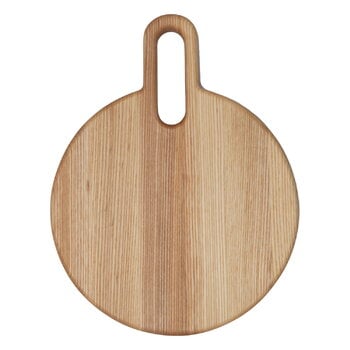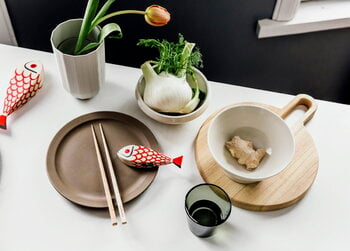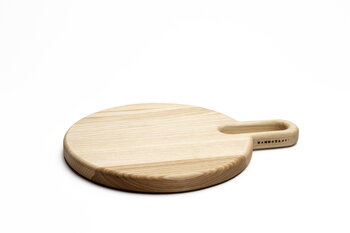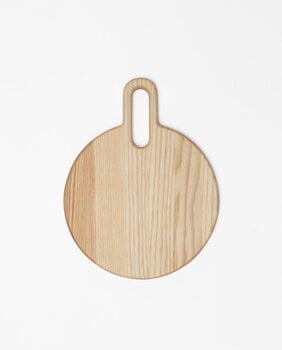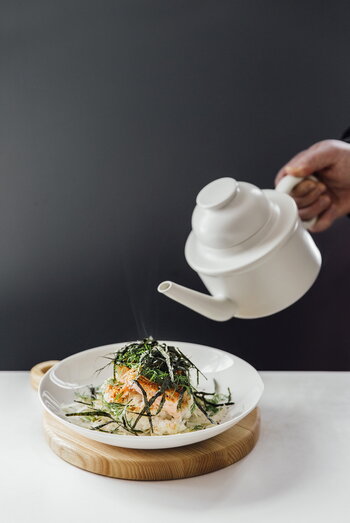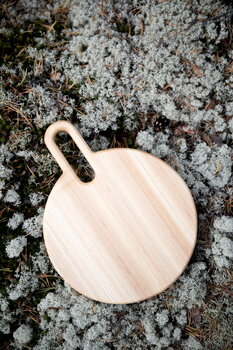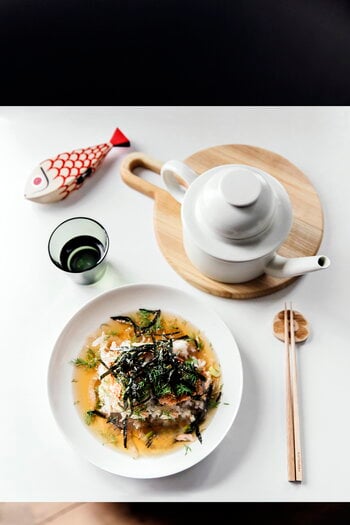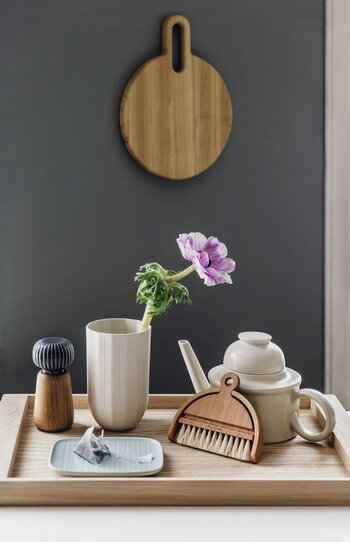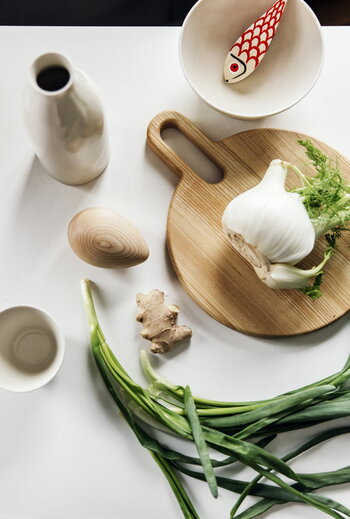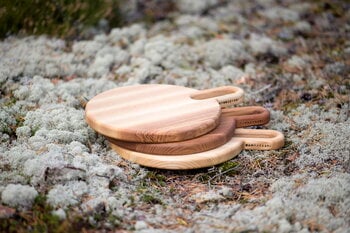Halikko is a cutting board designed and manufactured by Hanna Saari. Made of high-quality solid wood, the cutting board reveals unique grain patterns and works like a jewel in the kitchen. The cutting board has a rounded design, functional handle and a hole for hanging. Halikko serves perfectly as a serving platter in table settings and is a long-lasting gift idea.
The handmade antibacterial cutting board is finished with paraffin oil, which makes it a safe cutting surface for bread or vegetables. Each cutting board is a unique piece, allowing the wood texture and shades to vary individually.
